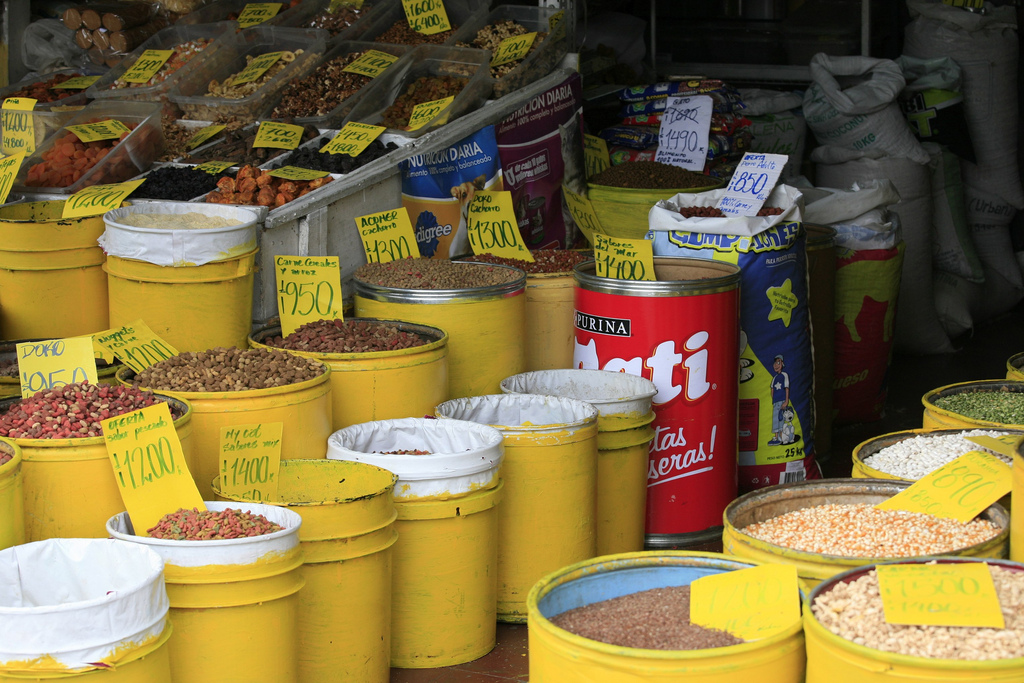“Food politics and famine in the 21st century”
October 15 Famine refers to a sudden scarcity of food that can result in mass mortality from starvation, but Abdur Rafay Usmani, 21, a Correspondent from Karachi in Pakistan, looks at political and other pressures behind the tragedy.
Famine refers to a sudden scarcity of food that can result in mass mortality from starvation, but Abdur Rafay Usmani, 21, a Correspondent from Karachi in Pakistan, looks at political and other pressures behind the tragedy.
For a majority of our history, we used to think of famines as an ‘act of God’, outside the control mere mortal men. Prayers were offered but little else. With the heralding of the age of enlightenment, our understanding of our environment increased and we began to explain things more rationally.
In 1798, Thomas Malthus came up with his theory of population. He proposed that human population grows exponentially while growth in food production is linear. Eventually the population would beyond the means to sustain itself, leading to a famine, subsequent decease in population and then the cycle would repeat itself.
From this hypothesis, two solutions were derived: one was to control population growth and the second was to greatly increase agricultural output to match the needs of a growing population. With the Green revolution of ’60s, the agrarian reforms of the ’70s and heavy rural investment during the ’80s, annual yields increased rapidly. With introduction of family planning and an increase in rural literacy, constrains were put on population growth. It meant that in historically famine-prone regions such as India and Pakistan, famine was largely eradicated. Today both countries are net exporters in agricultural produce.
Improvements in communications, a more integrated global society and rural access to wider markets enabled otherwise isolated communities to avoid famines and for governments to respond effectively in such crisis. However, paradoxically – beginning in the mid ’80s – famines began to increase in other parts of the world such as Sub-Saharan Africa.
Poverty alone could not have been the factor, as the areas hit with the crisis were accessible to the national governments and international donors. Rather, the main cause was largely political in nature. Two features were observed. Firstly, those affected were universally marginalized groups lacking political power and secondly, the forms of government in famine-hit countries were largely undemocratic.
Dictatorial governments may choose to ignore emerging warnings of food crisis, as there are few incentives for them to do otherwise. Those most affected by the crisis often have few means to oppose the government, and a state-controlled press means that such incidents are quickly covered up.
Famines can also be caused or exacerbated deliberately, as a means to furthering political agendas. A perfect example of this is the ongoing Darfur crisis. A food scarcity caused by droughts was further aggravated by a conflict between government and rebel forces. Farmland and villages were deliberately targeted by both sides, resulting in mass displacement of civilians and large-scale starvation. The political disincentives of providing aid in rebel-held areas means little has been done to alleviate deadly food shortages.
It is also imperative to discuss the role of international aid in addressing famines. Preventable famines can remain persistent due to political tensions between the state and aid donors. Donor countries and INGOs may delay aid to a country as a punitive measure against the government or militant group. Ironically, it is the ordinary people who suffer the most from such policies.
Climate change and a rising population pose a further risk of food shortages in Commonwealth countries of South Asia and Africa. To address famines in the future, democratic institutions within countries must be strengthened so that marginalised groups can have a say in governance. This can thus reduce the likelihood of potential future conflicts.
It is also fundamental that a political will for famine prevention must be present at all levels. This can only be possible if all major players involved in the crisis, e.g. international organizations, national governments, and foreign donors, are held accountable for their actions. Until a mechanism is set in place to do so, famines in the future may never be properly addressed.
Photo credit: Alex E. Proimos Bins of Nuts via photopin (license)
………………………………………………………………………………………………………………………………………
About me: I am co-founder of The Odd Historian and also serve as a a regional administrator of the Masterpeace, a grassroots organisation established in over 45 countries.
My interests include debating, writing and online activism. I aspire to join the UN after my graduation and one day serve as its Secretary General. Currently I am pursuing a degree in International Relations and Political Science from University of London.
………………………………………………………………………………………………………………………………………
Opinions expressed in this article are those of the author and do not necessarily represent the views of the Commonwealth Youth Programme. Articles are published in a spirit of dialogue, respect and understanding. If you disagree, why not submit a response?
To learn more about becoming a Commonwealth Correspondent please visit: http://www.yourcommonwealth.org/submit-articles/
…………………………………………………………………………………………………………………………………………




